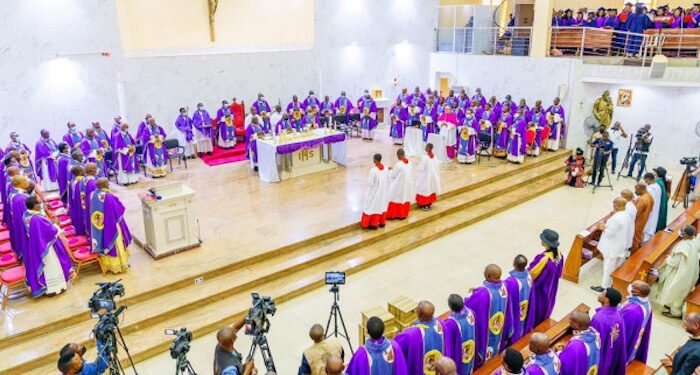The Catholic Bishops Conference of Nigeria (CBCN) has expressed deep concern over the recent decision by the governors of Katsina, Kano, Bauchi, and Kebbi States to close schools for five weeks during Ramadan. The CBCN warned that this move could worsen Nigeria’s already alarming crisis of Out-of-School Children (OOSC) and undermine efforts to improve educational outcomes in the northern region.
The CBCN, quoting UNESCO, highlighted that Nigeria currently has the highest number of Out-of-School children in the world, with over 10 million children not attending school. The Bishops urged the affected state governors to reconsider their decision and seek alternative solutions that would respect the rights and freedoms of all citizens, regardless of their faith.
In a statement released on Monday by CBCN President, Archbishop Lucius Ugorji of Owerri, and Secretary, Bishop Donatus Ogun of Uromi, the bishops noted that the closure of schools would not only affect Muslim students but also Christian students and Christian-owned schools. They raised concerns over the secular nature of the country, stating that such a decision could violate citizens’ rights and freedom to practice their faith without hindrance.
“We, the Catholic Bishops Conference of Nigeria (CBCN), express deep concern over the recent declaration by some governors in northern Nigeria to close schools for five weeks during the Ramadan period. This decision, which affects not only Muslim students but also Christian students and Christian-owned schools, raises serious questions about the secular nature of our country and the rights of all citizens,” the statement reads.
The CBCN also referenced the Nigerian Constitution, which emphasizes the secular nature of the state and the freedom of citizens to practice their religions. “As stated in Section 10 of the Nigerian Constitution, ‘The Government of the Federation or of a State shall not adopt any religion as State Religion.’ This provision guarantees the freedom of all citizens to practice their faith without hindrance,” the statement emphasized.
Furthermore, the CBCN cited international agreements, including the Universal Declaration of Human Rights (Article 26) and the International Covenant on Economic, Social, and Cultural Rights (Article 13), both of which affirm education as a fundamental human right. The Bishops argued that school closures would jeopardize this right and the future of millions of Nigerian children.
The CBCN expressed particular concern about the negative impact this decision would have on northern Nigeria, which already struggles with high rates of Out-of-School Children. The Bishops urged the federal government to intervene, ensuring the protection of the rights of all Nigerians, regardless of their religious affiliation.
“We pray that our leaders will prioritize the education and well-being of all Nigerian children and work toward creating a more just and equitable society for all,” the CBCN concluded.


